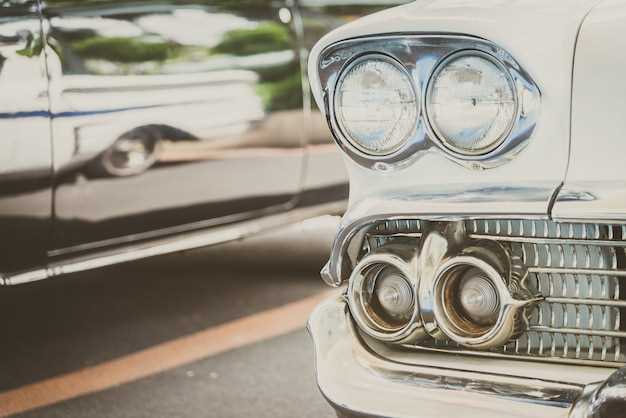
When it comes to acquiring classic cars from the vibrant 1970s, enthusiasts often face a crucial decision: should they opt for an auction or pursue a private sale? Each option presents unique advantages and challenges that can significantly impact the outcome of the deal. Understanding these differences is essential for anyone looking to make a wise investment in a classic car.
Auctions are renowned for their high-energy atmosphere and the potential for securing a fantastic deal. They bring together a diverse pool of buyers and sellers, often resulting in competitive bidding that can drive prices up or offer incredible buying opportunities for savvy enthusiasts. For those searching for iconic models from the 70s, participating in an auction can be an exhilarating experience filled with unpredictability and excitement.
On the other hand, private sales offer a more personal approach to purchasing a vehicle. Buyers can engage directly with sellers, allowing for transparent discussions about the car’s history, condition, and any modifications. This format often leads to a more straightforward negotiation process and can result in more favorable terms. For collectors focusing on specific 70s classic cars, exploring private sales can yield some hidden gems that wouldn’t appear on the auction circuit.
Evaluating Costs and Fees: Auction vs Private Transactions

When considering the purchase of a classic car from the 70s, understanding the costs associated with both auction and private sale transactions is crucial for making an informed decision.
Auction sales often involve several fees that buyers must account for. These can include a buyer’s premium, which is a percentage added to the hammer price of the car. This fee can range from 5% to 15%, significantly impacting the final cost. Additionally, bidders may encounter registration fees or charges for bidding online. It’s essential to carefully review the auction house’s terms and conditions to avoid any unexpected expenses.
Private transactions typically involve fewer fees. In many cases, buyers can negotiate directly with sellers, leading to a more flexible pricing structure. However, buyers should still consider potential costs, such as a vehicle inspection or title transfer fees. Unlike auctions, private sales may not have a standardized process, which can lead to variances in costs depending on location and the specific agreements made between buyer and seller.
Moreover, the overall pricing in auctions is often more transparent, as the competitive bidding environment can drive the price upwards or reflect the true market value of the classic car. In contrast, private sales might allow for some bargaining, but can also result in overpaying if the buyer is not well-informed about the car’s valuation.
Ultimately, evaluating costs and fees requires careful consideration of both auction and private sale avenues. By understanding potential expenses and the nature of the transaction, buyers can make a more strategic choice when acquiring their desired 70s classic car.
Understanding the Limitations and Benefits of Classic Car Auctions

Classic car auctions present unique opportunities for enthusiasts seeking vintage vehicles, particularly from the 70s era. One of the primary benefits of these auctions is the access to a wide variety of classic cars in one place. Buyers can compare different models, assess their condition, and bid in real-time. This competitive environment can sometimes drive prices lower than typical private sales, allowing buyers to secure a great deal.
However, there are limitations to consider as well. Auctions are time-bound events, and the pressure of bidding can lead to impulsive decisions. Enthusiasts might find themselves caught up in the excitement and potentially overpay for a car. Unlike a private sale where negotiations can be more thoughtful and paced, the auction process can often limit due diligence, making thorough inspections difficult.
Another factor to keep in mind is the auction fees, which can add to the overall cost. Buyers need to be aware of the buyer’s premium, which is an additional fee paid to the auction house on top of the final bid amount. This aspect may negate some of the advantages seen in lower starting bid prices.
Choosing between a classic car auction and a private sale depends on personal preferences and circumstances. Auctions can offer a thrilling experience and the chance to find unique vehicles, while private sales often allow for more negotiation room and time to appraise the car’s condition before finalizing the deal.
Negotiation Strategies for Private Sales of Vintage Vehicles
When engaging in private sales of classic cars, effective negotiation strategies can significantly influence the outcome of the deal. Start by doing thorough research on the specific make and model you are interested in, paying attention to market trends, typical auction prices, and the car’s condition. Having this information will empower you during discussions, allowing you to confidently present reasonable offers based on factual data.
Building rapport with the seller is crucial in a private sale. Take the time to discuss the vehicle’s history, maintenance records, and any modifications made. This not only shows your genuine interest but also can lead to discovering additional value or potential issues that may affect the deal. Establishing a connection can make the seller more willing to negotiate favorably.
Emphasize the advantages of a private sale over an auction scenario. Buyers in private deals may have more control over the price and can avoid the anxiety associated with bidding wars that often characterize auctions. Highlighting this aspect can help justify your offer and make the seller more inclined to consider it, especially if they are looking for a straightforward transaction.
When presenting your offer, start below the market value to leave room for negotiation. This tactic allows flexibility and sets a tone for the negotiations. Be prepared to justify your initial offer based on your research, but remain open to counteroffers. Active listening during discussions can reveal the seller’s motivations, helping you tailor your approach and find common ground.
Finally, be ready to walk away if the terms do not meet your expectations. Sometimes, expressing your willingness to exit negotiations can prompt the seller to reconsider and potentially lower their asking price. Ensure that you articulate your value propositions clearly throughout the negotiation process, reinforcing why your offer is reasonable and beneficial for both parties.












